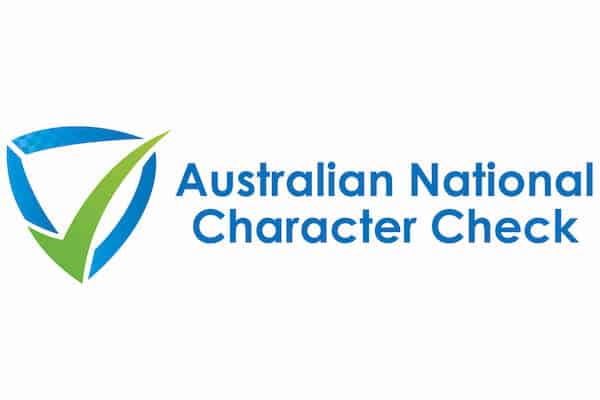Please be ready with your application reference number starting with 'P'. For example P1234567

The information on this webpage is to be read in conjunction with this disclaimer:
Australian National Character Check (ANCC) makes every effort to provide updated and accurate information to its customers. However due to the continuously changing nature of legislations for the Commonwealth and various States and Territories, it is inevitable that some information may not be up to date. The information on the website is general information only. The contents on the website do not constitute legal or professional advice and should not be relied upon as a substitute for legal or professional advice. While we endeavour to keep the information up to date and correct, we make no representations or warranties of any kind, express or implied, about the completeness, suitability, accuracy or availability with respect to the information.
A Caution in Australia is a kind of diversionary program issued by the Police that allows the offender to avoid further legal actions.
A Police Caution is a "recorded" warning or "let off" you receive from the law to avoid such offence in the future.
The biggest proponents of cautions in Australia argue that a Police caution issued in place of a fine, prosecution or court summons reduces the probability of the offender re-offending.
People get worried when they get a caution either for;
A Police Caution is not included in your criminal record and a Nationally Coordinated Criminal History Check in Australia. However, the Caution may be saved in your court alternatives history, Police records and can be used in a court proceeding for further offences.
Although a Nationally Coordinated Criminal History Check discloses all the releasable court outcomes/criminal records of the person in Australia, it does not release Cautions as they are not classified as a criminal offence or a disclosable court outcome.
Furthermore, the cautions are removed from the court alternative records after certain periods have passed or the offender satisfies all the conditions.
Far from diversionary programs, cautions, intervention orders, the Nationally Coordinated Criminal History Check will only reveal court outcomes, convictions and legal pronouncements against the individual. So here is a list of offences you can expect to see in a Nationally Coordinated Criminal History Check result;
The Police will only issue a Police caution by considering certain factors, but importantly it prevents an offence from proceeding to the court.
However, there is a limited amount of cautions a person can receive irrespective of the offence. If you get a Police caution instead of prosecution for your offence, behave like one who was just saved from a ghastly consequence, and employ good behaviours in the future.
If you get a Police caution, there is no need to panic as they have only minimal to no consequences. However, this is not the same as tickets, fines, court summons or document seizures.
The Police do not just go about granting cautions to offenders unless certain conditions are met.
These conditions are guided by the Crimes (Diversion programs) Acts, the Police Acts and handbook, as well as those of the various States and Territories in Australia.
The conditions are;
Other restrictions include those who can (not) receive a caution in Australia;
Some cautioning programs/conditions preclude those who have a prior conviction in that offence from receiving a caution.
Some offences can never be settled by a Police Caution no matter the circumstance and must be prosecuted in court.
The Police officer considers a lot of factors before issuing a Caution to an offender. Even when the prior conditions are satisfied, other factors can influence the type and degree of cautions the offender will get.
The Police officer will consider;
The Australian Police have once issued police cautions in a similar condition like;
The Youth and Juvenile justice courts are already strained, and further prosecution on "minor" offences may just break it. It is important to know that most minors are only experiencing the inexperience and hormonal or rebellious tendencies of being young.
So, for eligible (minor) offences, the Police will issue an informal caution against them rather than charge them to court. And may even still issue the Caution if they think the matter is serious, but not serious enough to warrant a sentencing or jail term.
However, the Police can only issue a Caution undertaking in the presence of their parent or legal guardian. It is important to all parties that the young offender understands the effect of the cautions and other conditions that apply; some of these conditions are;
The formal police caution for a Youth will remain in the Police database even after the person turns 18 years. However, when they become adults, the Police Cautions are not used against them in the Adult court.
It is wiser and safer to avoid any form of criminal activity. However, if you have a police caution there is no need to disclose it to an employer or other party. In a few roles, or circumstances, or special orders you may need to disclose whether you have received a police caution in the past.
Also, if you are issued an expiation notice, court summons, fines, or license disqualification for offences you think should just warrant a caution, seek legal advice immediately.
Asides from the conditions issued with Police caution, there are no penalties attached to them.
The content on this website is communicated to you on behalf of Australian National Character Check™ (ANCC®) pursuant to Part VB of the Copyright Act 1968 (the Act).
The material in this communication may be subject to copyright under the Act. Any further reproduction of this material may be the subject of copyright protection under the Act.
You may include a link on your website pointing to this content for commercial, educational, governmental or personal use.
The contents of this website do not constitute legal advice and should not be relied upon as a substitute for legal or professional advice.